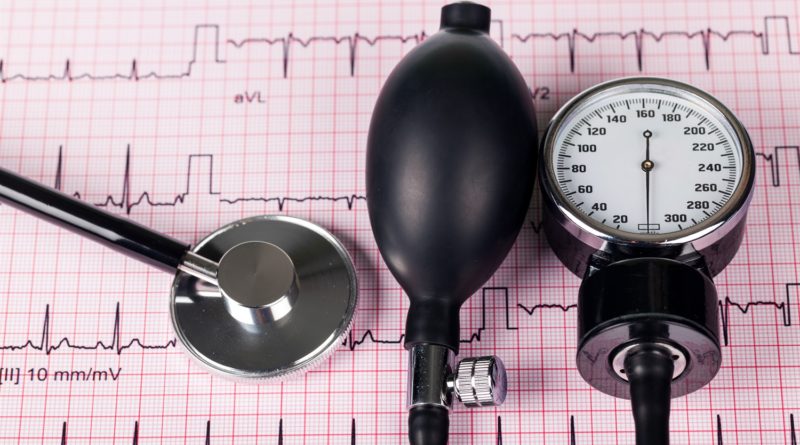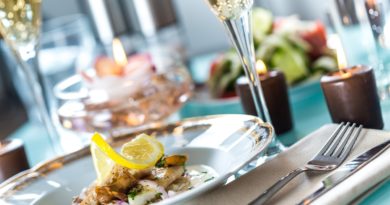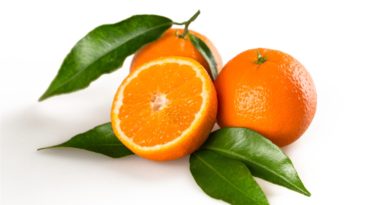8 Tips to Control Your Blood Pressure Without Medication
A low salt diet does not have to be tasteless or monotonous. We tell you how you can continue enjoying a rich and healthy diet that helps you keep your blood pressure under control…
More than 100 million adults in the US have high blood pressure. However, more than half of them are unaware that they are hypertensive or discover it with surprise after a routine medical check-up, because hypertension does not usually give symptoms. The problem is that, long before it shows signs, it can severely injure organs as vital as the heart, brain or kidneys, as well as the eyes, which can lead to myocardial infarctions, thrombosis, stroke, vascular disorders, renal failure or hypertensive retinopathy, among other diseases.
Although the reasons why blood pressure rises are not entirely clear, it is known that ageing, the genetic component, lifestyle and type of food have a lot to do with it.
Say goodbye to the salt
The first measure that all people with hypertension or prehypertension are obliged to comply with is to restrict the consumption of salt (sodium) as much as possible, since the salt that the kidneys are not able to eliminate accumulates in the blood. As salt retains fluid from the body, the circulating blood volume increases and the heart is forced to work harder to move all the blood. This increases blood pressure, which results in hypertension, which becomes chronic if not controlled with proper treatment.
At the same time, the presence of too much salt in the body causes more calcium to be eliminated, which translates into an increased risk of osteoporosis, and also favors certain tumors, such as stomach cancer, hinders the function of the respiratory system and accelerates the onset of overweight and obesity.
There is no doubt that, at the beginning, the food without salt will be insipid and monotonous to the palates accustomed to tasty foods, but we will be able to find varied alternatives so that forgetting the salty taste does not become a punishment. You just have to choose other foods or season them in different ways.
Although it is hard to believe when one is still trying to get used to the idea of their new diet, once we have become accustomed to a less salty taste we come to prefer this new taste, since we appreciate the natural flavors of food better.
8 tips to eat less salt
It is important to be clear that the salt that we add to food represents 20% of our total salt consumption, while another 72% of the salt we take is that contained in precooked foods, preserves and many other processed products, including although they do not have a salty flavor. The remaining 8% is the salt that is naturally present in food, and it is convenient to know which are the ones that contain it in greater quantity to moderate their consumption especially.
Those who love salty foods and those who can not eat foods without adding salt, may find it unattainable to just add 5 grams of salt TOTAL to the day. However, it is proven that a balanced diet does not have to exceed that amount, and there are some tricks to achieve it:
1. Avoid highly salty foods, among which are:
- Broth concentrated in cubes
- Soy sauce
- Preserves of all kinds
- Mustard sauce
- Serrano ham
- Sausages
- Olives and pickles
- Dry cod, anchovies, salmon and other smoked fish
- Cured cheeses and roquefort
- Nuts with salt
- Fried appetizers
2. Read the labels of the commercial products that you are going to buy and compare between the different brands to choose them that contain less salt. Salt on food labels can be called "sodium (Na)". There are preservative additives in bottled or canned products that contain salt, but in other forms, such as sodium benzoate (in the case of juices) or monosodium glutamate (meat).
3. In the kitchen, substitute salt for other condiments that enhance the natural flavor of food: garlic, lemon juice, vinegar, pepper, paprika, curry, saffron, cinnamon and, of course, aromatic herbs (basil, oregano, fennel, tarragon, parsley, laurel…), which provide an even more delicious flavor and aroma if they are fresh.
4. Remove the shaker from the table. Instead, have small bottles of varied spices. The exception should be the boats that incorporate different types of herbs and that also contain salt. Better make your own mixes.
5. Always rinse vegetable and vegetable preservatives with water before using them. The water they contain has a lot of salt.
6. When you eat in a restaurant, ask them to prepare your dish without salt and, if it has sauce, they will bring it to you separately.
7. Do not use bicarbonate, neither to cook nor to fight stomach acidity (neither "fruit salt"). The bicarbonate is called "sodium" because it contains sodium (salt).
8. Effervescent medications contain salt as well, so they should also be avoided if possible. Ask the doctor what alternatives there are.
The numbers to look for
- The blood pressure is considered high when the systolic (maximum) tension is greater than 140 and the diastolic (maximum) is greater than 90. This is also expressed as 14/9.
- There is talk of prehypertension when you have more than 120-80.
Although there are no symptoms or hypertensive relatives, doctors recommend blood pressure checks starting at age 40 every six or twelve months, and starting at age 50, every two or three weeks.
Where is the "hidden" sodium?
Everyday foods and drinks that, surprisingly or not, usually have abundant salt in their composition. Some are these:
- Pre-cooked food
- Buns and cookies
- Breakfast cereals and bars
- Soft drinks and sparkling water
- Meat and fish
- Milk
- Bread (of all kinds)
- Mineral water
The friends of your blood pressure:
- Celery: Raw or boiled, by its diuretic action helps to lower the tension. Similar effects have broccoli, cabbage, endive and artichoke.
- The tomato: Raw and with skin, containing vitamin C, lycopene, calcium, iron and phosphorus, is also an exceptional ally against hypertension.
- Garlic contains allicin, with vasodilatory and antihypertensive properties. Onion is just as interesting.
- Carrot, rich in vitamin A (beta carotene), behaves as a good antioxidant at the vascular level, so it helps the arteries to stay in shape.
- Pumpkin, potato, wheat bran, spinach, banana, peach and apricot stand out for their high content of potassium, a nutrient that helps counteract excess sodium in the body and is easily eliminated through urine when taking diuretic medications to combat hypertension.
- Olive oil is rich in monounsaturated fats (mainly oleic acid) and antioxidants, which prevents vascular accidents.
A new lifestyle
If you have hypertension or prehypertension, it is very likely your doctor has explained to you that just avoiding salt is not enough to prevent blood pressure from rising higher and can thus pose a serious risk to health. In addition, next to the medication that you have indicated (if it is the case), you have to become addicted to a healthy life plan and try at all times not to deviate from it. The formula is not difficult to fulfill if you really intend to:
Weight loss: If you are overweight, losing a few pounds is the most effective way to reduce blood pressure. Even if you do not reach your ideal weight, even losing only a few kilos will have positive effects on the control of your pressure.
Eat healthy: To lose weight, it is essential to maintain a moderate calorie diet and balanced in nutrients, especially ensuring essential for the heart and arteries are healthy: vitamins C and E (present in fruits and vegetables), magnesium (vegetables green leaf, dairy, fish, nuts), calcium (dairy products, legumes, fish, crustaceans), potassium (bananas, nuts, algae), fiber (legumes, fruits, cereals), antioxidants (seeds, fish, fruits forest) and omega 3 polyunsaturated fats (fish, olive oils).
On the other hand, you have to restrict to the maximum the foods that provide an excess of saturated and hydrogenated fats (red meats, pastries and industrial snacks, etc.), which contain a lot of cholesterol, as well as very sweet foods, since sugar that does not burn becomes fat.
Do cardiovascular exercise: It is an essential complement to the above to keep tension at bay. The recommendation is to walk at a good pace, swim or ride a bicycle for 30 minutes a day.
Detoxify! This comprises three measures to which more important:
- Absolutely eliminate tobacco from your life. It is a real poison for the arteries.
- Restrict alcohol intake. Drinking more than two drinks a day is associated with an increase in blood pressure and is also totally incompatible with medication.
- Combat stress. It is another toxic in our daily life that contributes to raise blood pressure.




